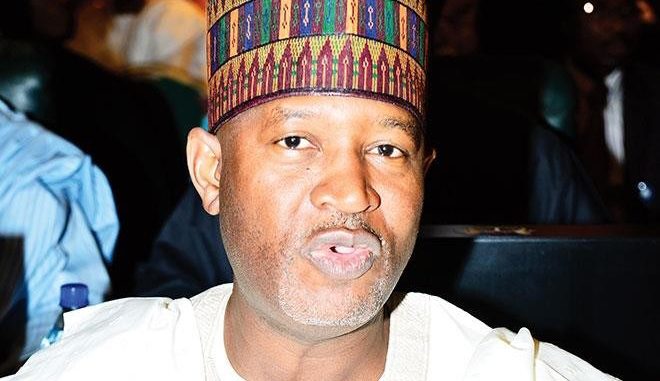
Addicted to borrowing and state control of commercial enterprises, the Federal Government has made a lunge for a fresh $461 million for airport projects. Coming after the $500 million loan it took for “airports remodelling” from the Export-Import Bank of China six years ago, the new credit, says the Minister of State for Aviation, Hadi Sirika, is to be used to build new airport terminals. This tactic of forever borrowing for infrastructure without ever achieving lasting, tangible results should give way to a new economic strategy of liberalisation, concessioning and attracting private sector investment for critical infrastructure.
The Federal Government specialises in repeating its mistakes: throwing good money after bad ideas and locking out the best ideas and private investment. These negatives are all present in the latest approval by the Federal Executive Council of a loan variation of $461.79 million “to deal with some challenges in the building of (airport) terminals,” as Sirika put it when he appeared before the Senate Committee on Aviation. Other “challenges” he listed include a change in the structural design of the airports, foundation footing, escalators, provision for the biggest modern aircraft and change in the floors to accommodate a railway station, as well as the relocation of control towers.
Running a country and an economy this way cannot deliver progress. The entire scenario reveals a predilection for short-term solutions, lack of rigour in policy formulation and execution and carelessness in public service. It is incredible that in the 21st Century, a government would borrow to “remodel” its premier international airports without making provisions for today’s biggest aircraft, rail links and adequate power supply, among other facilities that are standard in any airport worth that name. With the government set to make provision for $73.9 million counterpart funding, the bill for our unending airport refurbishment is rising ever higher.
As this newspaper has long canvassed, the Federal Government’s resolve to continue to single-handedly fund airports and other infrastructure – by appropriation of scarce resources and shifty borrowing – is indefensible and anachronistic. The country simply does not have the resources to plug an infrastructure deficit that the African Development Bank puts at $3 trillion or N921 trillion at current exchange rate, while the annual capital budget is just over N2 trillion or less than $7 billion. Stubbornly, the government attempts to solely build and run railways, airports, seaports, refineries, steel plants and highways with increasingly poignant failure rates. Already, this recklessness has seen our external debt rise to $21.6 billion by Q3 2018 and climbing fast as the government borrows to fund its deficits. A more viable, common sense approach is to apply a mix of liberalisation of the economic sectors, concessioning, privatisation and Public-Private Partnership in a robust regulatory framework to attract local investors and draw in massive foreign direct investment.
Besides, the government is yet to ascertain how the $500 million and other expenditure on the airports were spent. What is incontrovertible is that the 22 airports run by the Federal Airports Authority of Nigeria are in a terrible shape as attested to by a joint National Assembly committee assessment in October 2017 that found nothing at the sites to justify the funds appropriated for them; only dilapidated structures and facilities. Previous loans were invariably squandered and mired in corruption: no fewer than three recent former Aviation ministers have been arraigned in court on corruption charges. The $461 million will not address the infrastructure problems, prompting the need for more loans as the dubious $500 million tranche has proved. FAAN admits that only its Lagos and Abuja airports are making money; why not enter them into concession or PPP arrangements for the struggling 20 others? Even the two promising ones are not achieving their full potential and need to be similarly given as concessions in a transparent manner to the world’s best operators under legal and commercial instruments that will draw in FDI, create jobs and make Nigeria Africa’s leading aviation hub.
Nigeria should stop the tomfoolery. Significantly, it is still bent on the “national airline” fantasy persistently shunned by respectable investors, but for which N8.7 billion is earmarked in the 2019 budget, while the government is borrowing furiously to fund several railway projects, instead of the sensible option of opening up the sector to FDI. Airports Council International, the Brussels-based professional group of airport operators, reported in 2018 that more than 50 per cent of airports in Europe had private shareholders, saying, “There is a wealth of evidence to prove that privatised and semi-privatised airports in Europe are extremely competitive and focused on their customers.”
The Buhari-led government should change its statist mindset to realise that airports are first, businesses. Yes, they are vital national assets, but they are everywhere in the free world increasingly being run as commercial investments by private operators, with emerging economies following suit. The International Air Transport Association forecasts that the number of passengers passing through airports will rise from four billion in 2017 to 7.8 billion by 2036, which has been increasing pressure on governments to extend infrastructure amid budget cutbacks. FAAN said 10.9 million passengers passed through Nigerian airports in 163,646 aircraft movements January to September 2018. Privatisation and concessioning are therefore attractive options. The United Kingdom, EU member countries and Australia have taken this route: Japan has opened hers to private operators for 30-35-year concessions, while Brazil began the shutdown of its national airports authority and sale of its 54 airports in 2017.
The government should adopt the concession model under a regulatory and concession regime that meets global standards, protects the country’s sovereign interests, but rigorously excludes the government from the operation of airports.
END

Be the first to comment